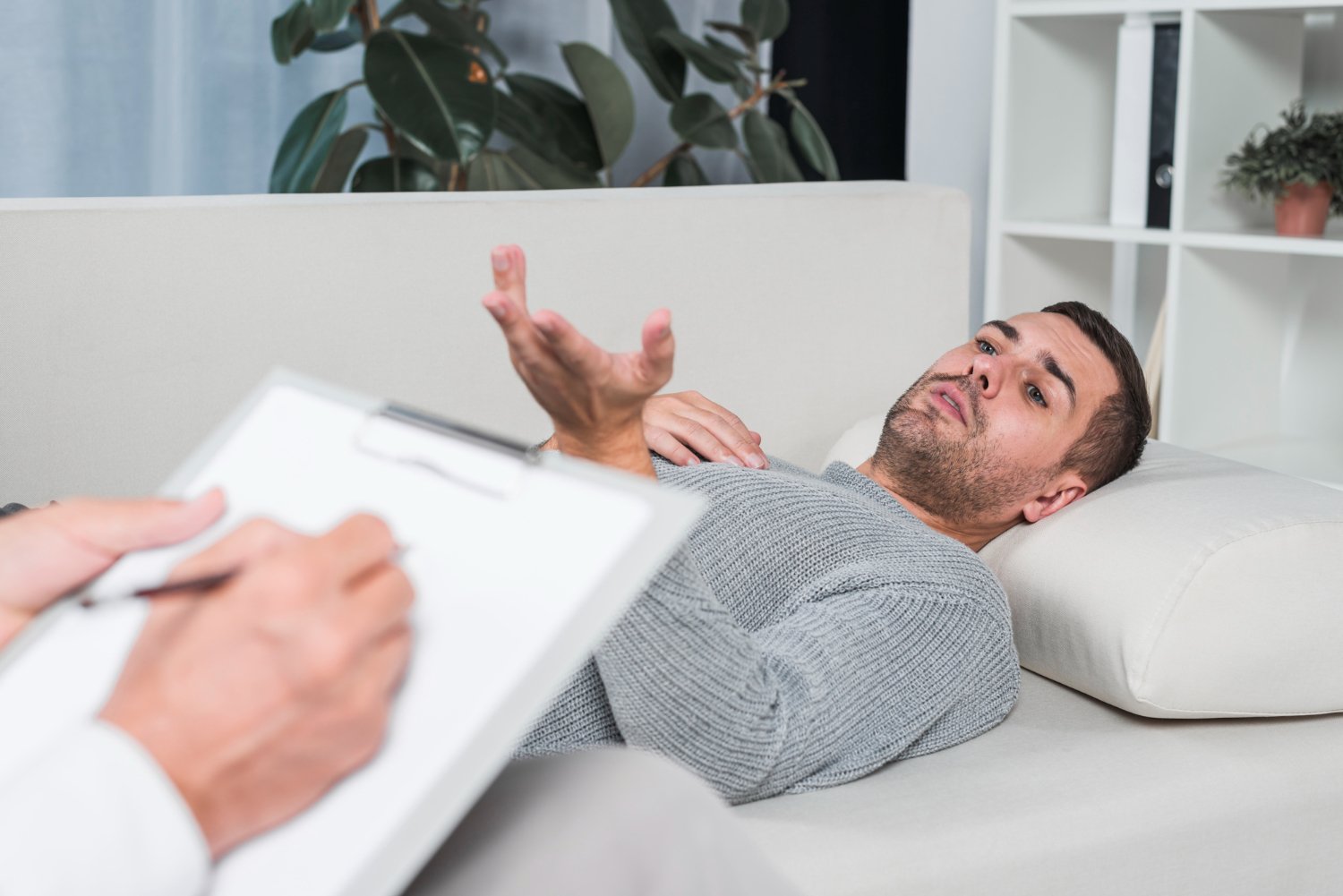The Hidden Link Between Men's Hormone And Sleep Apnea
Sleep apnea is a sleep disorder that affects millions of people worldwide. Men, in particular, are at a higher risk of developing this condition, which can have severe consequences if left untreated. In recent years, a connection between sleep apnea and hormonal imbalances has come to light, opening up new possibilities for treatment. We are here to discuss the ins and outs of sleep apnea, its causes, symptoms and the benefits of men's hormone replacement therapy as a potential solution.
Unraveling The Mystery Of Sleep Apnea
Sleep apnea is a disorder marked by brief interruptions in breathing while asleep. These pauses can disturb regular sleep patterns, resulting in inadequate sleep quality and numerous health concerns. Sleep apnea presents in three forms: obstructive, central and complex. The most prevalent form, obstructive sleep apnea (OSA), arises when throat muscles relax and obstruct the air passage, causing snoring and instances of halted respiration.
A Glimpse Into The World Of Sleep Apnea Sufferers
Living with sleep apnea can be incredibly challenging. Sufferers often experience loud snoring, gasping or choking during sleep and frequent awakenings throughout the night. This constant disruption can lead to excessive daytime sleepiness, difficulty concentrating, mood changes and irritability. The impact of sleep apnea on daily life can be significant, affecting work, relationships and overall well-being.
The Underlying Triggers Of Sleep Apnea
Several factors can contribute to the development of sleep apnea. Some of the most common causes include:
The Weighty Issue: Obesity's Role in Sleep Apnea
Excess weight, particularly around the neck, can pressure the airway and increase the risk of sleep apnea.
Aging and its Influence on Sleep Apnea Development
The prevalence of sleep apnea increases among middle-aged and elderly individuals, as age-related muscle weakening in the throat can contribute to the condition.
The Impact of Lifestyle Choices on Sleep Apnea
Smoking, alcohol consumption and sedative use can all increase the risk of developing sleep apnea.
Testosterone Deficiency: A Surprising Culprit
Emerging research suggests a link between low testosterone levels and sleep apnea in men. Testosterone plays a role in maintaining muscle mass and strength and reduced levels may contribute to weakening the throat muscles.
Recognizing The Telltale Signs of Sleep Apnea
The most common symptoms of sleep apnea include:
Loud snoring
Episodes of stopped breathing during sleep, often followed by choking or gasping
Restless tossing and turning
Morning headaches
Dry mouth or sore throat upon waking
Insomnia or difficulty staying asleep
Excessive daytime sleepiness
Difficulty concentrating
Mood changes, such as irritability or depression
The Hidden Perils Of Compromised Sleep
Untreated sleep apnea can have serious consequences for overall health. Poor sleep quality has a link to a higher risk of heart disease, high blood pressure, stroke, type 2 diabetes and depression. Additionally, excessive daytime sleepiness can increase the risk of accidents and impair work performance, negatively impacting personal and professional lives.
Harnessing The Power Of Men’s Hormone Replacement Therapy For Sleep Apnea Relief
Men's hormone replacement therapy, specifically testosterone therapy, has been shown to relieve some individuals suffering from sleep apnea. A reputable hormone replacement center can assess your hormone levels and determine if you are a candidate for this treatment.
Some Of The Potential Benefits Of Hormone Therapy For Sleep Apnea Include:
Improved Muscle Tone: Testosterone therapy can help increase muscle mass and strength, which may alleviate airway obstruction in some cases of sleep apnea.
Weight Loss: Testosterone therapy can aid in weight loss, reducing the pressure on the airway and improving sleep apnea symptoms.
Better Sleep Quality: By addressing the hormonal imbalance and associated symptoms, men's hormone replacement can lead to better sleep quality and fewer sleep disruptions.
Enhanced Mood and Cognitive Function: Hormone therapy can help alleviate the mood changes and cognitive difficulties associated with sleep apnea by improving sleep quality and testosterone levels.
Reduced Health Risks: Treating sleep apnea through hormone replacement therapy can lower the risk of developing heart disease, high blood pressure, stroke and other related health issues.
Discover The Secret To Restful Sleep At The Broadway Clinic!
Tired of sleepless nights and constant fatigue? It's time to take control of your sleep apnea! Visit one of the best hormone replacement centers in Oklahoma City, The Broadway Clinic in Oklahoma City, where our team of experts is ready to help you rediscover the joy of deep, rejuvenating sleep. Don't wait another night—call us today and embark on your journey toward better health and improved quality of life. The Broadway Clinic: your ticket to a restful night's sleep in Oklahoma City!
**Disclaimer: The information on this page is not intended to be a doctor's advice, nor does it create any form of the patient-doctor relationship.

